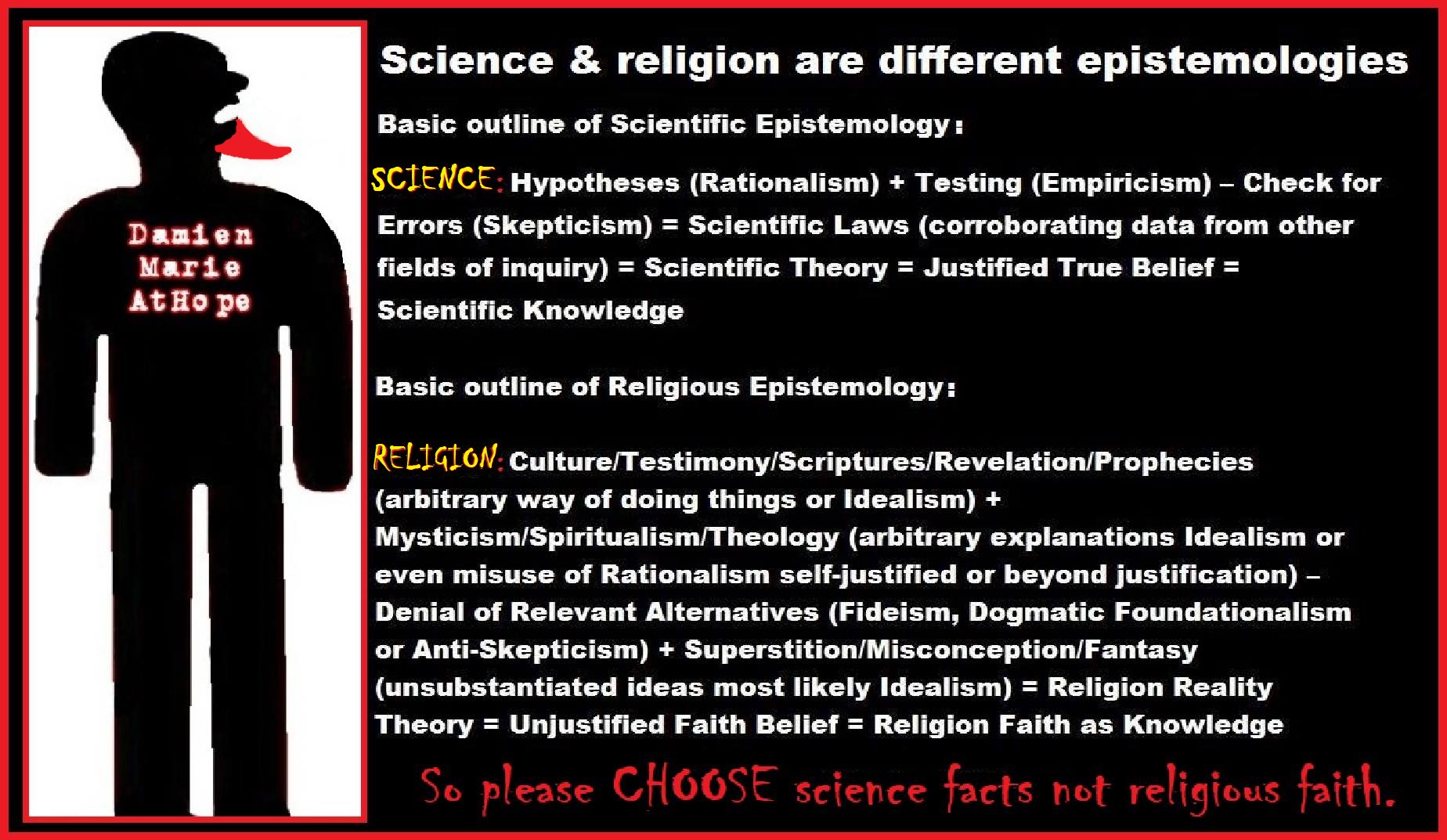
If you say you doubt science, I will likely address the problem you now are burdened with backup such an assumption or assertion first concerning that you have a valid and reliable method of organizing, theorizing, and knowing any proposition about or tied to something about or in the world accurately?
Because not until you do this can I trust what you are talking about? Never stop your thirst for reason and truth, I hope you are inspired to always think critically, ethically and emotively.
Religion and Science are Completely Different Epistemologies (Epistemology: from Greek epistēmē, meaning ‘knowledge’, and logos, meaning ‘logical discourse’)
Some try to say that science and religion ear not that different saying they both use faith. This is utter nonsense, not only does science not use faith as a method for anything, religion and science are completely different epistemologies. Scientists reason differently than most nonscientists because of a standardized focus on scientific based reasoning and scientific epistemology.
My basic outline of scientific epistemology:
Science: Hypotheses (Rationalism/Deductive, Inductive, or Abductive Reasoning etc.) + Testing (Empiricism/Systematic Observation) – Checking for errors (Skepticism/Fallibilism) + Interpret/Draw a Conclusion (Rationalism/Deductive, Inductive, or Abductive Reasoning etc.) *if valid* = Scientific Laws (describes observed phenomena) or Scientific Theory (substantiated and repeatedly tested explanation of phenomena) = Justified True Belief = Scientific Knowledge = Epistemic Certainty supportive of correctability
*being epistemically certain, is believing a truth has the highest epistemic status, often with warranted psychological certainty but it may not, neither is it a requirement*
My basic outline of religious epistemology:
Religion: Culture/Testimony/ Myths/Scriptures/Revelation/Prophecies (arbitrary and unjustified way of coming to ideas or Idealism) + Mysticism, Supernaturalism, Spirtualism, or Theology (arbitrary and unjustified to form explanations, Idealism or misuse of Rationalism; often self-justified or even believe they are beyond a need for justification) – Denial of Relevant Alternatives and Basis (Fideism/Dogmatic Foundationalism/Pseudo-Skepticism/Anti-Rationalism/Anti-Empiricism or Anti-Skepticism) + Superstition, Falsehood, Misconception, Fantasy, or Delusion (unsubstantiated ideas and unjustified way of coming to ideas or Idealism) = Religion Reality Theory = Unjustified Untrue Faith Belief = Religion Faith or Beliefs as Knowledge = Unwarranted Psychological Certainty supportive of incorrectability
*being psychologically certain, is believing a truth does not mean that something is not actually false*
Religion vs. Science, Don’t Confuse Beliefs: https://damienmarieathope.com/2017/08/religion-vs-science-dont-confuse-beliefs/
